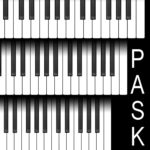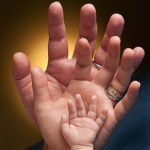Effective practice and speed of learning
‘I realize now, looking back’ that most of the time I spent practicing was used trying to overcome difficulties because of my hand-size….If you spend 90% of the time trying to overcome limitations imposed by hand size, then you are truly disadvantaged’.
Christopher Donison, Executive Artistic Director, Music by the Sea, and co-inventor of DS keyboards, British Columbia, Canada, 1998, p. 43.
The greater the degree of technical difficulty for a pianist, the greater the amount of practice required. This means the pianist must spend more time on technical issues, with less time and mental capacity to focus on musical issues. When small-handed pianists play a piece on a smaller keyboard that they previously learnt on the conventional keyboard, it is often a revelation. They immediately become aware of how much physical and mental effort they previously had to invest just to ‘get the notes’ in passages that were not ‘under the hand’. This difference is magnified when both hands are dealing with difficult tasks (e.g. fast octaves in one hand and widely spread arpeggio-type figures in the other, often encountered in Chopin). Suddenly, a pianist no longer has to focus on just reaching the octaves, but has the ability to relax the hand and think about shaping the musical line being played by both hands. When focusing on extreme technical problems, it is simply not possible to think about the musical issues to the extent required to achieve an excellent musical outcome, no matter how much practice has been done.
To maintain good technique and minimise strain, small-handed pianists need to leap across the keyboard much more:
‘When jumping from one note to a distantly placed note, small-handed players should use their arms to find the notes and refrain from reaching with the fingers. This necessitates much practice purely for the sake of accuracy.’ Brenda Wristen, Associate Professor Piano Pedagogy and Keyboard Skills, University of Nebraska-Lincoln, Nebraska, USA, and Lora Deahl, Associate Professor of Piano, Texas Tech University, USA (2003).


